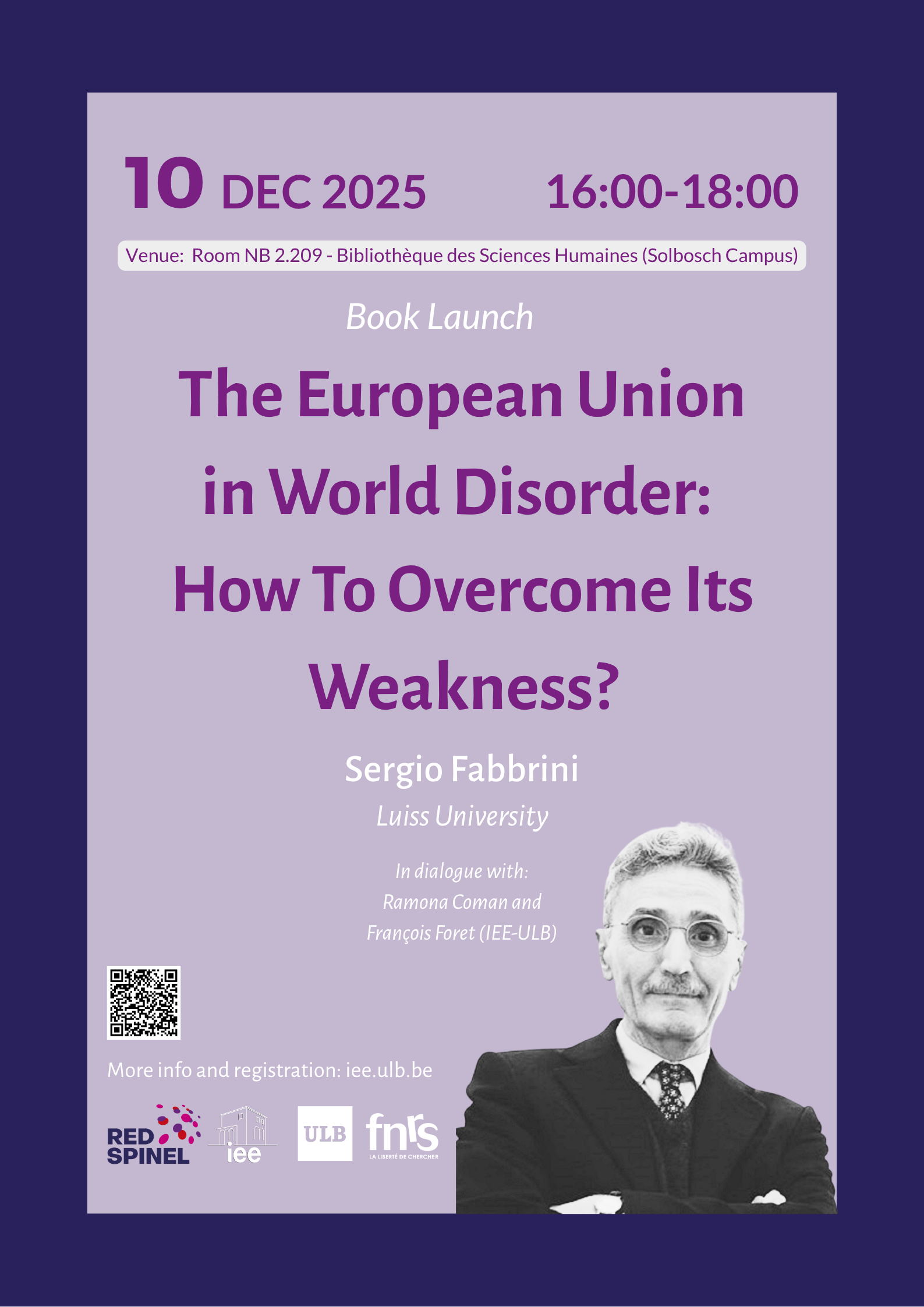-
CEVIPOL
-
FR
-
Actualités
10/12/2025 - The European Union in World Disorder: How To Overcome Its Weakness? - Sergio Fabbrini
Publié le 17 octobre 2025
– Mis à jour le 17 novembre 2025
Date(s)
Lieu(x)
Room NB 2.209 - Bibliothèque des Sciences Humaines (Solbosch Campus)
About the speaker
Sergio Fabbrini is Professor Emeritus of Political Science and International Relations and Intesa Sanpaolo Chair on European Governance at the Political Science Department of the Luiss Guido Carli in Rome. He had the Pierre Keller Chair at the Harvard Kennedy School of Government (2019-2020) and he was a Recurrent Visiting Professor at UC Berkeley. He was Jemolo Fellow at the Nuffield College, Oxford University and Jean Monnet Chair Professor at the Robert Schuman Center for Advanced Studies, European University Institute in Florence. He lectured in several international universities and won several prizes. He published twenty-two books, two co-authored books and twenty edited or co-edited books or journals’ special issues, and several hundred scientific articles and essays in seven languages in the most important peer-reviewed international journals.
His recent publications in English include: A Federalist Alternative for European Governance: The European Union in Hard Times (Cambridge University Press 2025); Europe’s Future: Decoupling and Reforming, (Cambridge University Press, 2019); Which European Union? Europe After the Euro Crisis, (Cambridge University Press, 2015); Compound Democracies: Why the United States and Europe Are Becoming Similar (Oxford University Press, 2010, second and revised edition); America and Its Critics: Vices and Virtues of the Democratic Hyperpower (Cambridge, Polity Press, 2008).
He is considered one of the most authoritative scholars on European and comparative politics and institutions.

 Book Launch: "The European Union in World Disorder: How to Overcome Its Weakness?"
Book Launch: "The European Union in World Disorder: How to Overcome Its Weakness?"